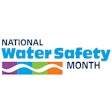The 2015 version of the International Swimming Pool & Spa Code (ISPSC), the industry’s only comprehensive model code covering both residential and commercial swimming pools and spas is now available from APSP.
The ISPSC uses prescriptive and performance-related provisions to establish minimum safety requirements for public and residential pools, spas and hot tubs.
“The ISPSC was developed by ICC members with input from a wide range of industry experts, which in 2012 made it the first comprehensive code to address and upgrade pool and spa safety,” said Dominic Sims, CEO of the ICC, which publishes the code. “Changes in the 2015 edition continue to improve public safety and provide code compliance guidance to code officials, manufacturers and installers.”
Key changes included in the 2015 ISPSC include:
Tighter alignment with all the latest American National Standard Institute (ANSI)/APSP/ICC pool and spa standards and technology;
The incorporation of the updates made to ANSI/APSP/ICC-4 2013 Standard for Aboveground/Onground Residential Swimming Pools; ANSI/APSP/ICC-14 2011 Standard for Energy Efficiency of Self Contained Portable Electric Spas and Hot Tubs; and ANSI/APSP/ICC-15 2013 Standard for Residential Swimming Pool and Spa Energy Efficiency; and expanded safety requirements exceeding those in the Virginia Graeme Baker Pool & Spa Safety Act.
“The ISPSC gives builders and code officials a common language in which to ensure consumer safety,” said APSP Senior Director, Technical and Standards Carvin DiGiovanni. “Already jurisdictions are adopting the ISPSC, and we will continue to advocate for adoption across all 50 states.”
DiGiovanni explained that, by having a consistent code across jurisdictions, ISPSC will result in more consistent contractor compliance and allow code officials, health officials, designers and builders to more effectively ensure pools and spas are built safely. “Both residential and commercial pools are addressed in the ISPSC ensuring greater consumer safety coverage,” he added.
The ISPSC has already been adopted in Virginia, and pool and spa builders are taking notice. “The new law and Code is much more comprehensive about how to construct a pool, from what hydraulics should be used to prevent suction entrapment, to the shape of the diving envelope to prevent and reduce injury,” said Will R. Beverlin, project manager, Augusta Aquatics in Waynesboro/Fishersville, VA. “This will make pools, spas and water features in Virginia safer to enjoy and level the playing field because every pool builder must now build to a standard they may have not previously followed.
“This is good news for my company because we’ve always built pools, spas, and water features to the ANSI/APSP standards,” Beverlin added. “Now that the state legislature has caught on and adopted the ISPSC, it gives consumers peace of mind and reaffirms our business practice of following consensus standards to build it right.”
APSP recommends that code and health officials and builders adopt the ISPSC because it:
• Is written in clear language suitable for enforcement.
• Is supported by both industry and regulators, already adopted for use in 9 states and many counties.
• Covers all pools and spas, residential and commercial. It also covers all aquatic vessels including aboveground and inground residential and public pools, portable and in-ground spas, water parks, exercise spas and hot tubs.
• Includes time-proven ANSI/APSP pool design and construction standards by reference and integration.
• Meets or exceeds Virginia Graeme Baker Pool & Spa Safety Act compliance.
• Contains barrier, decking, lighting, circulation system, pump, accessibility, diving, sanitizing equipment, filter and suction fitting provisions.
• Requires portable spas be certified to latest consensus standards, eliminating the need to inspect inaccessible interior components.
• Is the first swimming pool and spa code to address aquatic recreation facilities (water parks) and include pool and spa energy consensus standards.
• Coordinates with the widely adopted family of ICC Codes for seamless integration.
For more information about the ISPSC, or to purchase, visit APSP.org/ISPSC.












































